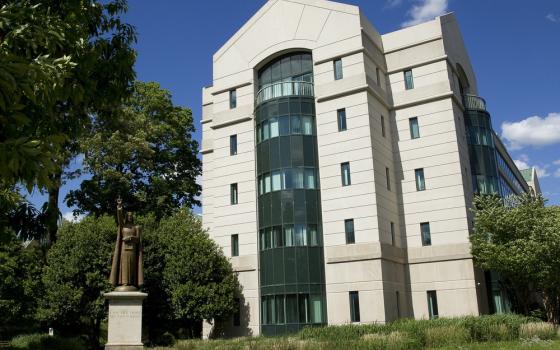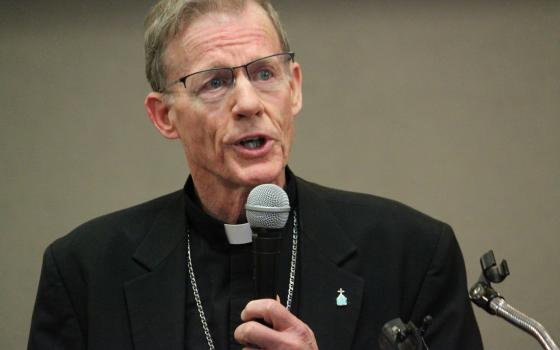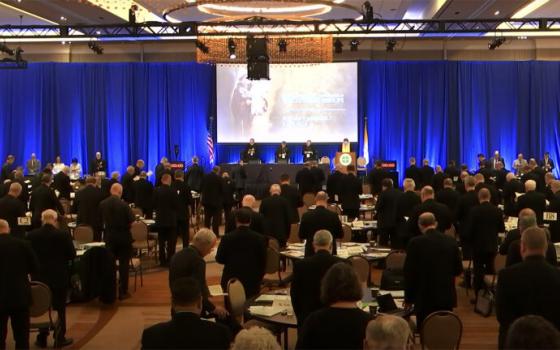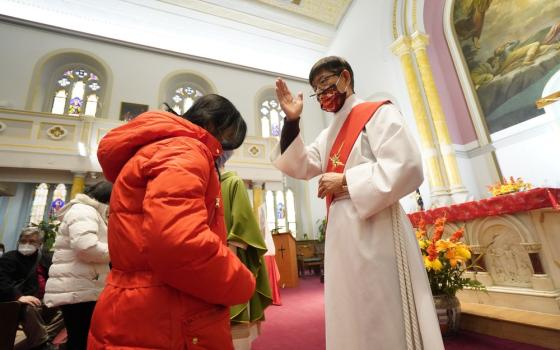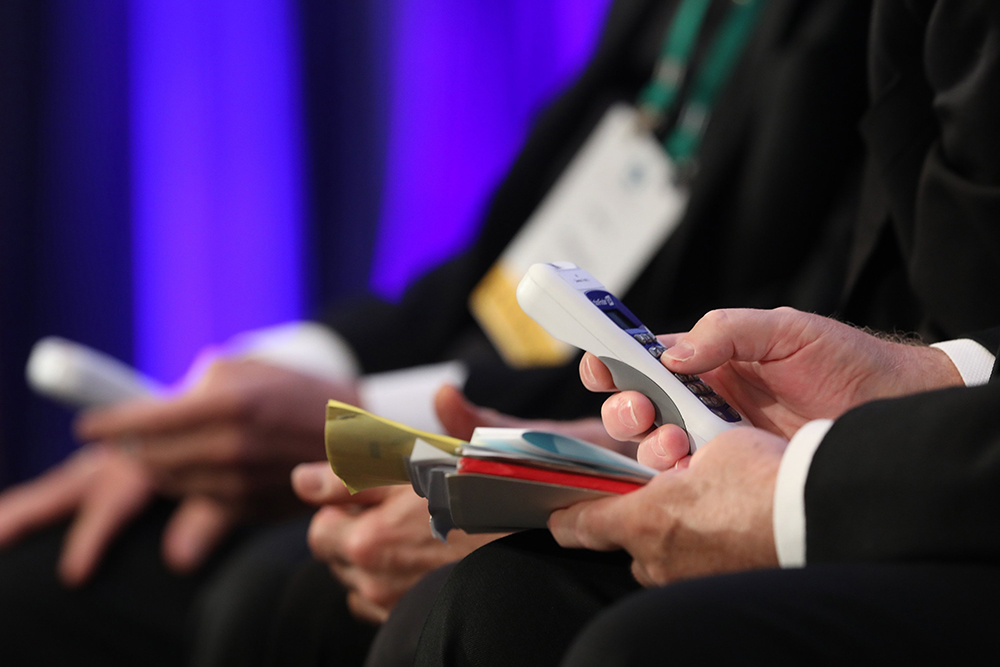
Bishops vote Nov. 12, 2019, during the fall general assembly of the U.S. Conference of Catholic Bishops in Baltimore. (CNS/Bob Roller)
Greetings from Louisville where the U.S. bishops have gathered for their spring meeting. This morning the bishops are having prayer together and then going into executive sessions. They won't have a public plenary session until tomorrow.
By the time the bishops assemble in plenary session tomorrow, there is little chance the Catholic Campaign for Human Development, the bishops' anti-poverty program, will be shut down, although it could emerge from this ordeal hobbled.
Yesterday, there were a lot of committee meetings, none of which are open to the press, but after conversations with several bishops, those defending the Catholic Campaign for Human Development are confident they are making the case for the good work of the campaign.
The most basic argument from the critics is that the campaign's finances are a mess, a view first propagated anonymously in an article at the Pillar. As I explained when the Pillar hit piece came out, no committee or subcommittee of the U.S. bishops' conference can simply run amok with finances. If a particular committee wants to tap into reserve funds for a good cause — for example, because during a pandemic, anti-poverty work is especially needed — the approval of the budget and finance committee is needed.
Advertisement
Publicly available information, set forth in an article by my colleague Brian Fraga, demonstrates that the Catholic Campaign for Human Development's finances are similar to those of other offices funded by national collections. They all took a hit in donations during the pandemic. The campaign tapped into its reserves to be able to maintain funding levels. That's what the reserves are for.
Why then the attack? There are two types of critics of the Catholic Campaign for Human Development. One group consists of the abortion culture warriors who objected whenever the campaign collaborated on an anti-poverty project with a group that supports abortion rights. Their stance involves a gross distortion on Catholic social teaching about cooperation with evil. The Catholic Campaign for Human Development never worked with the Urban League to build an abortion clinic. But, if the Urban League, which supports abortion rights, wants to collaborate with the campaign on a project to help residents of a poor neighborhood organize themselves to get needed services from the local government, there is no illicit cooperation with an evil in that effort.
The second group of critics consists of those who simply oppose the Catholic Campaign for Human Development's community organizing approach. They contend that no approach that was conceived by a radical — and a Marxist! — like Saul Alinsky could possibly be used by the Catholic Church. Of course, the Catholic Church has always permitted itself to cooperate with radicals and Marxists when possible. During the years of the Soviet empire, when the communist regimes were not actively persecuting the church, ecclesial authorities found ways to work with them on a host of civic concerns.
Both groups of critics represent a tiny slice of Catholics in the pews and, likewise, only a few bishops. The fear among those of us who value the Catholic Campaign for Human Development's work is that the critics who have long wanted to shut down the program because of these other reasons are using the budget crunch at the conference as a ruse. All bishops are mindful of the need to tighten the finances of the bishops' conference.
It is doubtful the bishops will scrub the program; it remains to be seen how forcefully they will support it. At a time when so many Americans continue to struggle with poverty, and when the political class largely neglects their needs, the bishops need to stand foursquare behind the Catholic Campaign for Human Development. It isn't enough to save it. They need to let the world know that the bishops of the church still intend to "proclaim good news to the poor" (Luke 4).
The poor so rarely have a voice in this society, and the church must empower the poor to make their needs heard. Otherwise, the bishops' very identity as followers of Christ will be called into question radically.




